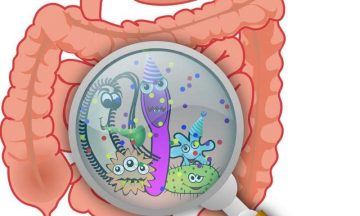Ziba Kashef in Phys.Org:
 The human gut harbors trillions of invisible microbial inhabitants, referred to as the microbiota, that collectively produce thousands of unique small molecules. The sources and biological functions of the vast majority of these molecules are unknown. Yale researchers recently applied a new technology to uncover microbiota-derived chemicals that affect human physiology, revealing a complex network of interactions with potentially broad-reaching impacts on human health.
The human gut harbors trillions of invisible microbial inhabitants, referred to as the microbiota, that collectively produce thousands of unique small molecules. The sources and biological functions of the vast majority of these molecules are unknown. Yale researchers recently applied a new technology to uncover microbiota-derived chemicals that affect human physiology, revealing a complex network of interactions with potentially broad-reaching impacts on human health.
Led by immunobiologist Noah Palm, the research team used a chemical screening technology, known as PRESTO-Tango, that simultaneously tests thousands of human receptors at once. With it, they identified human gut bacteria that release small molecules that activate a specific group of receptors. Since these receptors regulate a wide range of physiological functions, the authors reasoned that the small-molecule-producing bacteria would also impact various aspects of human biology.
The team cultured and screened over 100 diverse gut bacteria for production of molecules that activated host receptors, and uncovered multiple chemical interactions between microbes and their human hosts.
More here.
